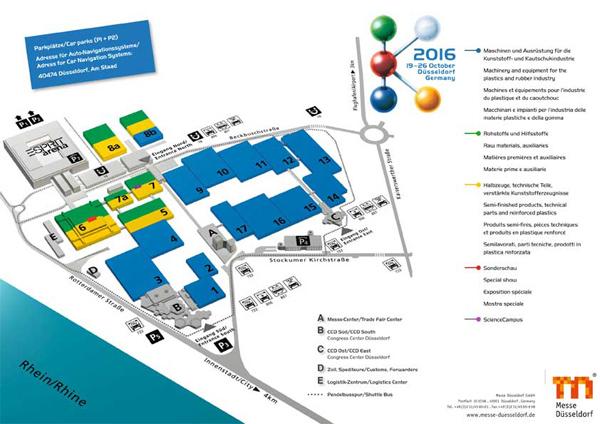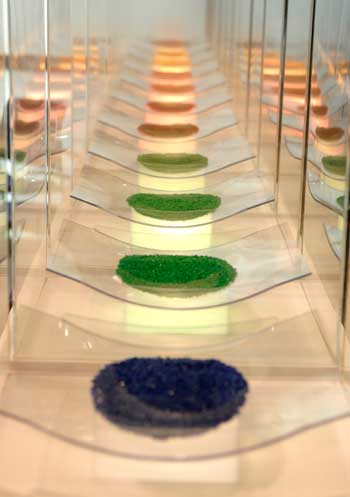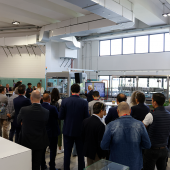K 2016: facts and figures with focus on Italy

The triennial trade show "K" constitutes a fixed appointment offering a complete overview on the technological progress and the proposals fielded by the plastics and rubber industries. The show (19-26 October 2016, Düsseldorf - D) features as an innovation and business platform for raw materials producers, plastics and rubber processing machine builders, processing and converting companies, but also for all user industries.

The reasons and the figures behind the show (already fully booked for some time now) were made explicit during a meeting organized last May 24 at the Magna Pars Hotel, Milan by the Italian representative of Messe Düsseldorf - the company Honegger Gaspare. Representing the company, its sole director, Armando Honegger, drew attention to the sizeable Italian presence at the show, the biggest national grouping after that of the host nation: «In the face of more than 3,000 exhibitors from 50 nations, nearly 400 Italian companies will be present, that will use the K 2016 platform to present their offer, occupying an area of over 26,000 sqm net exhibition space. To be underlined the fact that eighty concerns again signed up for the fair after missing the previous edition, and that another 25 are still on the waiting list for a space».
And it is for sure a sign of the optimism of the Italian plastics sector, in particular the machine segment, in strong recovery after the years of crisis: according to the analysis made by Assocomaplast, 2015 was the best year ever in terms of exports, even surpassing the figures for 2007. In Italy hence plastics and rubber industry processors have begun to invest and purchase equipment, this after the stall on the Italian market that has lasted for 6 years.
Mirror of the times. Petra Cullmann, director of the event, was keen to stress one of the main features of "K" as a «mirror of the substantial changes being experienced by the world market; while relying on the massive participation of European and North American exhibitors, the number of companies from Asia and the area they occupy has been growing considerably for some editions, thus marking their emerging position in the plastics and rubber sectors».
The 19 halls of the Düsseldorf exhibition center (170 thousand square meters of net exhibition area) will therefore be fully occupied by the event, where more than 200,000 professional operators are expected to visit.
The halls will be clearly divided according to the product offer:
machinery and equipment; raw and auxiliary materials; semi-finished products, technical parts and reinforced plastic products (that stand out for innovation and breadth of range, low power consumption and sustainable products); services.
|
A summary of global and European plastics industry figures
In world trade, the German machinery builders lead the way with a 24% share of world exports, even before China (13%), Japan and Italy (both with 9%) and the US (6%). Europe relatively stable The packaging sector, according to data supplied by PlasticsEurope, consumed the largest share of plastic materials (39.5%) in 2014. The construction sector with 20.1%, is in second place, the automotive industry with 8.6% in third, followed by the electrical and electrical engineering industry with 5.7% and the agricultural sector with 3.4%. The consumption of the remaining circles of buyers, such as medicinals, the furniture industry, domestic appliance -, toy -, sports and leisure articles manufacturers together reached 22.7%. Germany is still the largest consumer of plastics in Europe (25%), followed by Italy (a good 14%), France (around 10%), Great Britain (around 8%), Spain (7%) and Poland (6%). |



 In terms of value produced, also regarding plastics and rubber processing machinery, China is the strongest country (33.4%) followed by Germany (20.5%), Italy (7.8%) and the US (7%).
In terms of value produced, also regarding plastics and rubber processing machinery, China is the strongest country (33.4%) followed by Germany (20.5%), Italy (7.8%) and the US (7%).
















